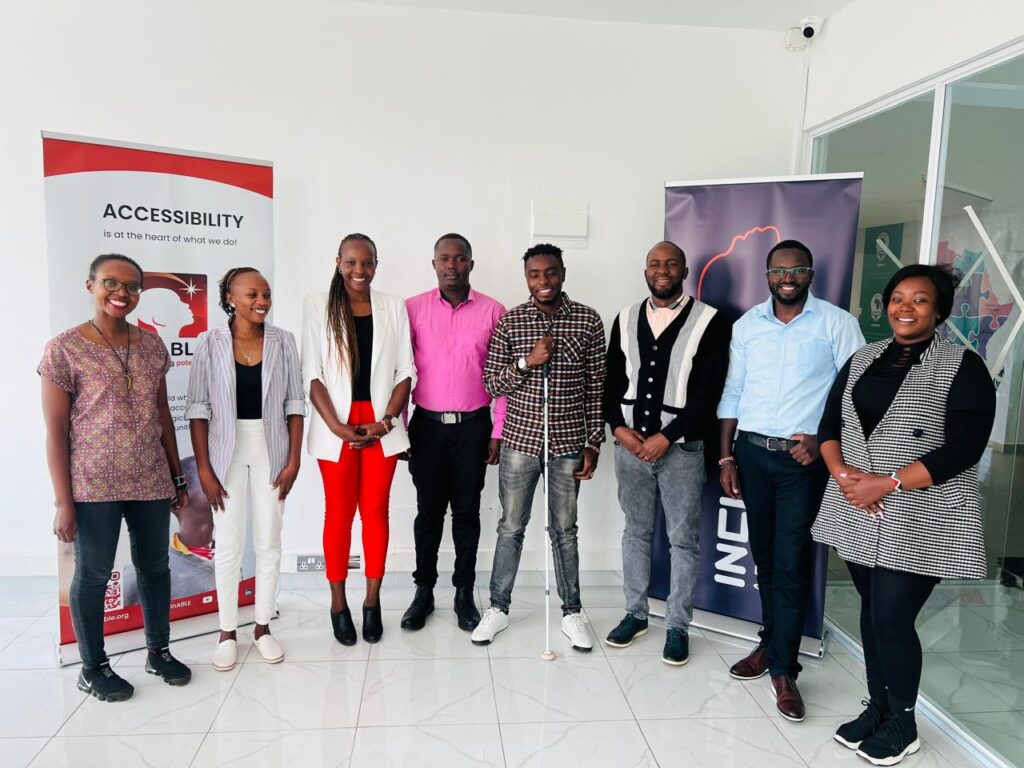Digital Story Time (DST), an assistive technology start-up that delivers sign language video storybooks to deaf children through various platforms, was the winner of the Digital Accessibility & Assistive Technology Innovation Award 2024. The innovation was feted during the Inclusive Africa Conference 2024 gala dinner held at the Radisson Blu Hotel in Upperhill, Nairobi. This award celebrates groundbreaking technological solutions that significantly improve the lives of Africans with disabilities.
Digital Story Time started as a transformative initiative to address the gap in education resources for deaf and hard-to-hear children and it is an initiative by eKitabu – an online book platform. DST provides sign language video storybooks with closed captions for learners who are deaf or hard of hearing. Studio KSL, an eKitabu innovation, collaborates with DST to create accessible digital teaching materials in Kenya Sign Language.

DST was inspired by the reality that less than 2% of 34 million deaf children worldwide have access to signed language in their childhood. “Exposure in early childhood is important for linguistic and neurocognitive development, but lack of it leads to significant challenges in language accession, numeracy and literacy, which affects their education progress and lifelong learning chances,” Georgine Auma Obura, Founder and Director, Studio KSL, explains.
DST’s goal is to close this gap by producing accessible early-grade reading materials in Kenyan Sign Language. These materials are designed to support language acquisition and build communication skills, setting the foundation for literacy among deaf children.

Platforms for Reaching the Deaf Community
DST holds various platforms to reach its targeted audiences, one of them being broadcast television channels like Edu TV, Akili TV and Signs TV, which have been effective in bringing DST content into homes across Kenya. Also, YouTube has been an effective digital platform which serves as an easy access to DST’s educational material. In schools, DST directly provides devices preloaded with their content ensuring that deaf learners have the resources they need at their fingertips.
Success Stories and Impact
DST’s impact is evident in the passionate feedback from educators and families. Parents of deaf children show excitement over the availability of accessible content, which not only benefits their children but also helps them learn sign language, thereby enhancing communication within the family. In schools, instructors have observed commendable improvements in sign language skills, attendance, learning gains, enrollment and transition rates. A pilot study conducted in 2022 across two schools with units for the deaf highlighted these positive outcomes.
Maria Mwaura, a teacher of the deaf at Ngala Secondary School for the Deaf in Nakuru County, shares a whole heartfelt success story. “My students, who earlier on lacked access to engaging storytelling in sign language, found a new source of joy and learning through DST. The enchanting stories and comprehension questions at the end fostered a love for learning, enhanced their storytelling abilities, and even boosted their confidence,” she says.
DST is developing accessible electronic publications and has partnered with organizations like Akili Kids TV and Ubongo. These partnerships have helped adapt popular educational content into KSL, ensuring deaf children receive the same benefits as their hearing peers.
Personal Rewards and Future Plans
The most rewarding aspect for DST is witnessing the joy and eagerness of deaf students engaging with the content and trying to imitate what the person on the screen is doing. When they see a familiar thing, they look at each other and sign “I know!”. The excitement, the concentration and the eagerness to learn is fulfilling to the DST team.
Moving forward, DST plans to introduce new content, including a second season of more engaging and interactive stories and Bible stories for early grade learners in Kenya Sign Language and starting deaf ‘’Book Talks’’ for learners.
By Collins Muturi, Communications Team